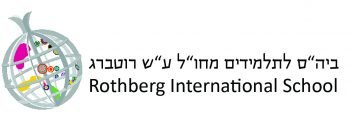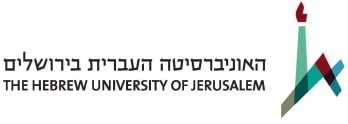Custom Faculty-Led Programs for Our Partners: Featuring Introduction to Israeli Law and Society
We are delighted that each year, faculty from roughly 15 universities and 175 students spend time in Jerusalem on faculty-led and customized programs hosted by our team here at Hebrew University’s Rothberg International School (RIS). We have helped bring programs to life in a wide variety of subjects with partners like Michigan State University, Harvard University, and the University of Chicago. Our collaboration with Dr. Bryan Schwartz from the University of Manitoba on a unique program about Israeli law, business, and society is an example of our more comprehensive program development and delivery. Introduction to Israeli Law and Society: Ancient Peoples and Newcomers in the Start-up Nation is now one of the biggest overseas programs in law for Canadian universities. The program is designed jointly, open to students from around the world, and taught by a range of HebrewU law faculty members and local guest speakers. “It’s a very productive partnership,” Schwartz notes, “very gratifying the way the program has turned out.” Schwartz has worked to find generous donors that support students attending the program. Thanks to the Canadian Friends of Hebrew University, in particular the Winnipeg Chapter, along with David Asper and the Asper Foundation, students typically receive funding to cover 80-90% of tuition. While on the program, students can choose to stay in a hotel on campus, or in a student dorm. They attend classes at HebrewU on the Mount Scopus campus.Selecting a Partner
Schwartz’s inspiration for the program came during his participation in an academic tour to Israel. His experience of Israel was so much richer than the portrayals typically seen in popular media that he wanted to share a broader view of the country and culture with his students. He approached a number of universities in Israel as potential partners for the program. But when he met with RIS at HebrewU, he had a distinctly different experience than he’d had with the other institutions: “The provost had a positive attitude about getting the program off the ground; a key turning point for our selection of HebrewU was their facilitative attitude.”Building the Program
Schwartz wanted to build a different sort of program that wasn’t focused solely on topics such as counterterrorism or human rights, which he saw as providing a more “limiting view” of the country. Schwartz worked together with Dr. Daniel Ohana of RIS and the Faculty of Law at HebrewU to build a three-week program on the legal framework in which Israel’s vibrant startup culture came to be, including topics such as the legal aspects of startup financing, integration of the diverse members of Israel’s multicultural society, and more. Ohana explains, “It’s very experiential. We take them to the Knesset [Israeli parliament] and the Supreme Court, where they sit in on an actual hearing. Last year, we organized a meeting with a Justice of the Supreme Court.” Students also visit the offices of international high-tech business enterprises and meet young startup innovators working in Jerusalem and Tel Aviv. They speak with entrepreneurs and journalists, as well as lawyers who specialize in the legal aspects of providing financing to startups. Additionally, international students get to meet with Israeli law students from HebrewU, who participate in legal clinics where they provide real assistance to populations in need. This gives both groups the opportunity to discuss issues of multiculturalism unique to their own countries. “We had to shut down conversations at the end of the class, students were so engaged,” Ohana says. Furthermore, Schwartz and Ohana have made sure to build excursions to important and interesting sites into the program, such as a tour of the Old City in Jerusalem, a day out in Tel Aviv, and a trip to the Dead Sea and Ein Gedi (an oasis and nature reserve), to name a few.Providing Diverse Viewpoints
Schwartz notes that one of the program’s strengths is how it “provides a well-rounded and balanced view of society in Israel.” Both Schwartz and Ohana attend each class, which ensures the instruction itself is also diverse. Schwartz explains, “I’m in the position to compare and contrast with Canadian law, with aboriginal peoples in Canada compared to tribal societies of Israel like the Bedouin of the Negev. The point is that someone knowledgeable about both societies is there to compare and contrast.” Guest speakers also give students an appreciation of the complex, varying viewpoints found in Israel. Speakers come from think tanks, advocacy groups (NGOs), start-up ventures, incubators, the Druze community, the Arab-Israeli community, the Bedouin community, and more. Schwartz notes that Ohana and the Faculty of Law at Hebrew University help find these diverse (but not dogmatic) speakers. “I get a lot of help from my Israeli academic partners; I pitch the ideas and they’ll find the right people, and sometimes the other way around. It’s a very productive partnership. Very gratifying the way the program has turned out.”Growing the Program
The program has been running successfully for six years now, welcoming 30-40 students each year from institutions such as the University of Manitoba, University of Saskatchewan, Université de Montréal, and McGill University. The program is now open to students from a wide range of countries, institutions, and backgrounds. Ohana notes that the program has benefitted greatly from RIS’s cooperation with the Hebrew University Faculty of Law. “The dean of the law school has made it a top priority to boost this program. As a result of this cooperative effort, we have senior faculty members who are internationally renowned specialists.”Watch Your Idea Come to Life
The academic landscape is moving more and more toward faculty-led and jointly designed programs. RIS at HebrewU has a team of dedicated professionals to assist you in developing a custom program that fits the needs of your institution and opens exciting new opportunities to your teaching faculty and students. We can also help identify top faculty members from our institution to teach courses or collaborate. Program development takes about one year.- Learn more about Introduction to Israeli Law and Society.
- Review our other customized programs.
- Contact us about developing a customized program.
Hebrew University Quick Facts
Founded: 1918 (opened 1925)
Senior Faculty Members: 1,000
RIS Students: 2,300
Total HebrewU Students: 22,000
Faculties: 7
Schools: 14
Academic Departments: 315
Research Centers: 100+
Alumni: 100,000
Nobel Prizes: 8
Fields Medal for Mathematics: 1
Israel Awards: 269
Wolf Prizes: 9
EMET Prizes: 33
Rothschild Prizes: 89
Apply to RIS
Hebrew University’s Rothberg International School offers you a challenging and rewarding academic environment to help you achieve your goals. Our tailored, flexible programs offer short- and long-term study opportunities.

